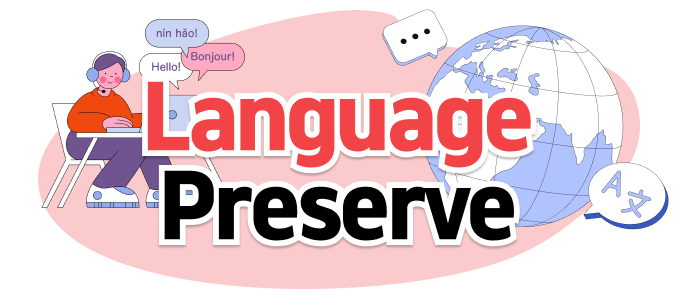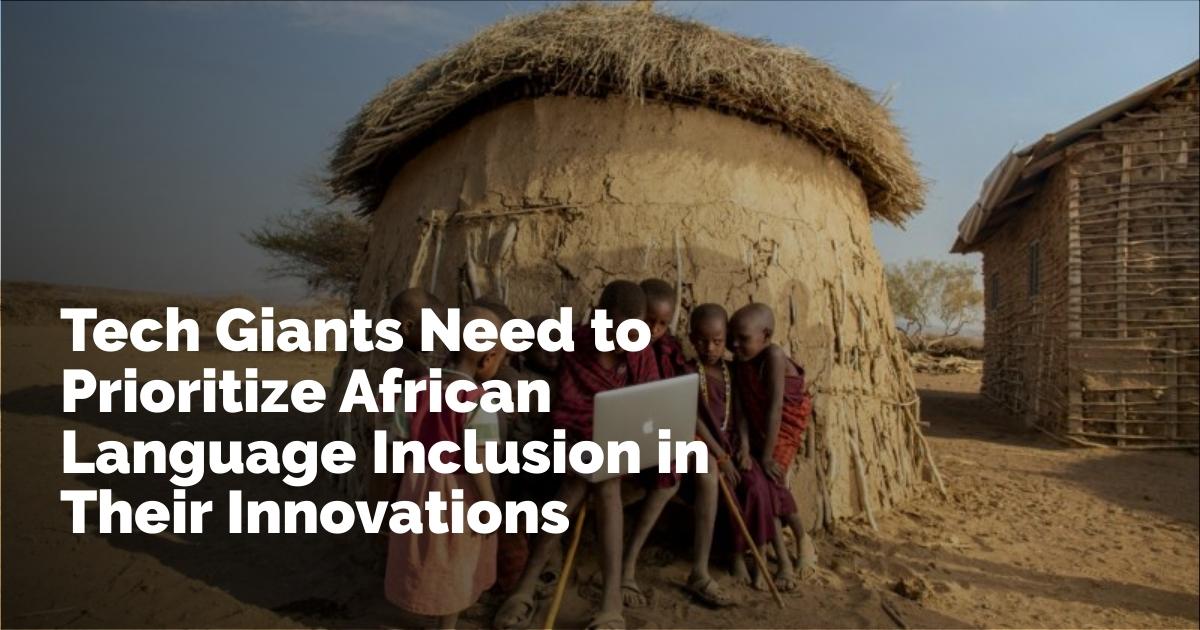Why Tech Giants Must Do More for African Language Inclusion
Exclusion from digital tools often means exclusion from opportunities, growth, and development for African Indigenous languages. In the digital age, where connectivity and technological engagement are critical, the gap between Africa and the rest of the world may widen if these languages are continually overlooked. This blog delves into the recent strides made by tech giants in facilitating African language inclusion and the importance of such endeavours for the continent’s future.
Translations: A Step Forward Yet Far to Go
On October 28, Google made headlines with an announcement that 15 more African languages would be integrated into their Voice Search, Gboard talk-to-type, and Translate dictation features. Among these languages are Chichewa, Hausa, Igbo, Kikuyu, Oromo, Rundi, Shona, Somali, South Ndebele, Swati, Tigrinya, Twi, Tswana, Nigerian Pidgin, and Yoruba. This milestone is a significant leap forward, enabling over 300 million Africans to access the web through voice interactions. However, it also highlights the lingering challenges in bridging the digital divide between Africa and the rest of the world.
Africa, home to more than 1.34 billion people, is the most multilingual continent globally, with approximately 2,158 living languages. Notably, Nigeria alone accounts for about 520 of these languages, followed by Cameroon and the Democratic Republic of Congo with 277 and 214 languages, respectively. Contrastingly, Seychelles is the least linguistically diverse nation on the continent. However, even significant advancements like Google's recent update unexpectedly overlook multiple languages, such as Lusoga, spoken by over 3 million Ugandans and absent from the list of soon-to-be-supported languages.
The exclusion of languages like Lusoga reinforces the digital language barrier, potentially denying millions the benefits offered by advancing AI-driven technologies. AI's potential to transform lives is undisputed, providing automation and convenience. However, if such technologies remain inaccessible in native languages, a vast number of Africans will miss out, furthering the technology gap globally.
Opportunities and Challenges for Language Inclusion in Africa
Agriculture, the cornerstone of Africa’s economy, is essential for the continent’s GDP, with over 43% of its economically active population reliant on farming. Yet, many smallholder farmers face myriad challenges, including unpredictable weather, financial insecurity, and limited access to crucial information, stemming, among other reasons, from language barriers. AI-powered technologies have demonstrated efficacy in addressing some of these challenges. Unfortunately, many such digital tools remain out of reach for farmers, given the lack of accessibility in their native languages.
The cultural heritage of African people is embodied in the linguistic diversity spread across the continent. Languages serve as reservoirs of knowledge, traditions, and cultural values and are vital in preserving and passing heritage across generations. However, with an alarming number of languages threatened by extinction, the United Nations declared the protection of endangered languages a priority. It is predicted that by the 21st century end, around 523 of 3,000 endangered languages in Africa could become extinct, a threat potentially exacerbated by the digital exclusion of these languages.
Local Initiatives and the Need for Global Support
Amidst such challenges, African entrepreneurs, developers, and researchers are stepping up to integrate African languages into digital technologies. In Nigeria, for instance, startups like Awarri are pioneering the creation of multilingual Large Language Models. Meanwhile, in Kenya, the startup Code Vast is leveraging AI to provide rapid healthcare advice in several local languages, including Swahili and Luo. Lelapa AI is crafting machine learning tools attuned to African contexts, and Crop2Cash in Nigeria delivers agricultural advice through AI-powered tools available round-the-clock in local dialects.
While prominent local initiatives are noteworthy, more concerted efforts between technology giants and local stakeholders are essential in truly bridging the digital language gap. Companies like Meta, Amazon, Uber, IBM, and AWS, integral to the tech landscape in Africa, must prioritize incorporating minority African languages into their technological advancements. Collaboration between local startups and governments could further strengthen efforts to develop technologies tailored to Africa’s unique linguistic needs.
Guidelines for Engagement
While the urgency for digital language inclusion continues to grow, creating a space for meaningful discussions and engagements is crucial. Every contributor's voice must be respected, fostering a community where diverse opinions offer insights into progressive development without resorting to negative tactics such as hate speech or personal attacks.
Support and Sponsorship
The move towards advocating for language inclusion is supported by various contributors, demonstrating a collective responsibility to create solutions that respect and reflect the continent's diverse linguistic landscape. As this journey unfolds, continued support from foundational services, donors, and volunteers alike is crucial.
출처 : Original Source

